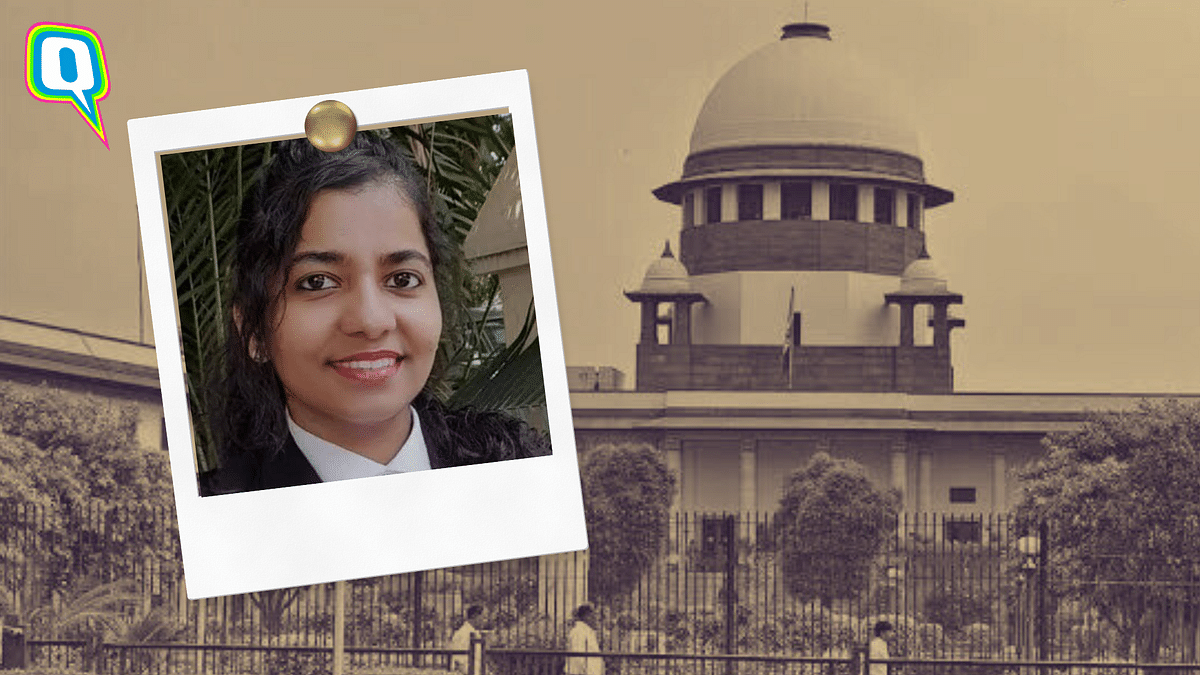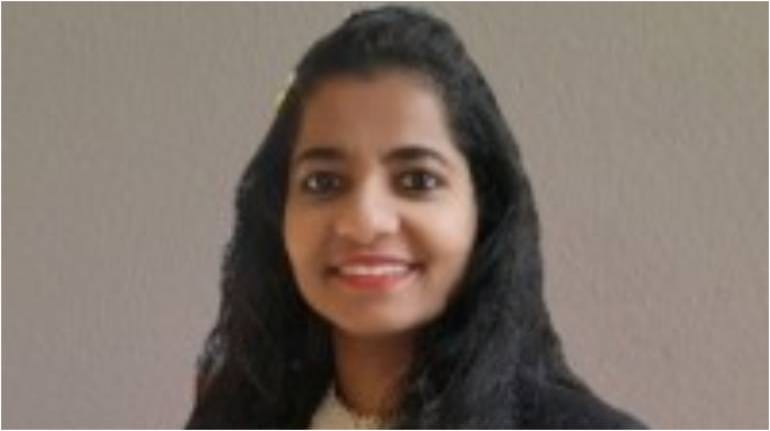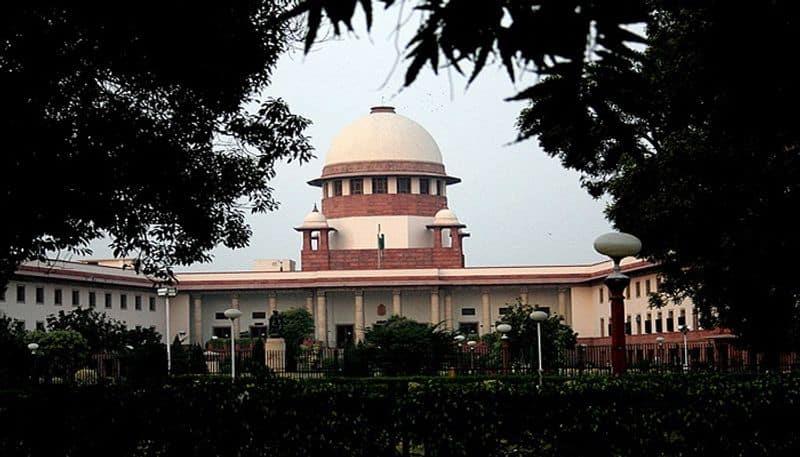In a Historic Milestone, Deaf and Mute Lawyer Advocates Before CJI in Sign Language at Supreme Court

In a Historic Milestone, Deaf and Mute Lawyer Advocates Before CJI in Sign Language at Supreme Court
In a groundbreaking moment that marked a significant step forward in inclusivity within the Indian legal system, the Supreme Court of India recently witnessed a remarkable event – the first-ever case argued by a deaf and mute lawyer using sign language. Advocate Sara Sunny, who faced communication barriers due to her hearing and speech impairment, found her voice in the form of sign language through her dedicated interpreter, Saurabh Roy Choudhary.
This momentous occasion unfolded when Choudhary, representing Advocate Sunny, appeared on the screen as their hearing turn arrived. Chief Justice of India, DY Chandrachud, recognized the importance of this milestone and instructed that screen space be provided to advocate Sara Sunny, thus enabling her to directly communicate her arguments.
The legal fraternity and the entire nation stood witness to this remarkable event, which not only exemplified the commitment to inclusivity within the justice system but also celebrated the power of determination and resilience. Advocacy for justice is a fundamental right, and this groundbreaking case underscored the significance of ensuring that every individual, regardless of their abilities or disabilities, has access to the legal platform.
Advocate Sara Sunny, despite being unable to speak or hear, proved that her voice could be heard loud and clear through the eloquent and expressive language of signs. Her interpreter, Saurabh Roy Choudhary, played an instrumental role in bridging the communication gap, ensuring that the essence of her arguments remained intact. Together, they presented a case that would set a precedent for the legal community and inspire countless individuals facing similar challenges.

Sara Sunny’s journey to becoming a lawyer was marked by her unwavering determination to overcome obstacles that many would find insurmountable. Born with hearing and speech impairments, her early life was a testament to the resilience of the human spirit. While her peers attended regular schools and communicated effortlessly, Sara faced the daunting task of adapting to a world primarily designed for those with typical hearing and speech abilities.
Despite these challenges, Sara Sunny exhibited exceptional academic prowess and a passion for the law that burned brightly within her. She pursued her legal education with unwavering determination, striving to make her dream of becoming a lawyer a reality. Her journey was not without hurdles, but Sara’s unyielding spirit propelled her forward.
The turning point in her life came when she encountered Saurabh Roy Choudhary, a sign language interpreter who shared her passion for justice and advocacy. Their partnership would go on to redefine the boundaries of what was possible for individuals facing communication barriers.
The case that brought Sara Sunny and Saurabh Roy Choudhary to the forefront of the legal world was a matter of immense importance. It revolved around the rights of individuals with disabilities and sought to address systemic issues that hindered their access to education, employment, and social inclusion. Sara and her interpreter presented a compelling argument that not only highlighted the legal intricacies of the case but also conveyed the lived experiences of those directly affected by the issue.

Chief Justice DY Chandrachud, renowned for his commitment to justice and inclusivity, recognized the significance of this moment. He made the decision to grant screen space to advocate Sara Sunny so that she could directly communicate her arguments before the Supreme Court. It was a moment of empowerment and recognition for individuals with disabilities who often face barriers in accessing justice.
The courtroom, typically characterized by the solemnity of legal proceedings, was transformed into a symbol of hope and progress. As Sara Sunny and Saurabh Roy Choudhary used sign language to convey their arguments, it became evident that the power of the law could transcend the limitations of speech and hearing. The legal fraternity, along with those watching from afar, witnessed the true essence of justice – the ability to provide a platform for every voice, regardless of the challenges it may face.
Advocate Sara Sunny’s journey from facing communication barriers to arguing before the Chief Justice of India serves as an inspiration to many. It reaffirms the principle that the law is a vehicle for change, and it is the duty of the legal system to ensure that this vehicle is accessible to all. The case also highlights the importance of sign language as a vital tool for communication and expression for the deaf and mute community.

The impact of this groundbreaking moment in Indian legal history extends far beyond the walls of the Supreme Court. It serves as a call to action for legal institutions across the country to adopt more inclusive practices and ensure that individuals with disabilities are not excluded from the legal profession or denied access to justice. Advocate Sara Sunny’s achievement sends a powerful message to aspiring lawyers with disabilities, demonstrating that with determination and the right support, one can overcome seemingly insurmountable challenges.
Furthermore, this milestone underscores the need for a broader societal shift towards inclusivity. It reminds us that inclusivity is not merely a legal obligation but a moral imperative. The legal system, often regarded as a symbol of justice, must lead by example in fostering an inclusive society where the rights and voices of all citizens are respected and upheld. In this regard, the Supreme Court’s recognition of Sara Sunny’s advocacy in sign language sets a precedent for greater accessibility and equity within the justice system.
Sara Sunny’s journey also draws attention to the significance of education and awareness surrounding disabilities. As we celebrate her achievement, we must remember that there are countless individuals with disabilities whose potential remains untapped due to societal barriers. By highlighting the capabilities of individuals like Sara and showcasing their accomplishments, we can challenge stereotypes and inspire a more inclusive and accepting society where every person’s unique abilities are celebrated.
The first-ever case argued by a deaf and mute lawyer using sign language before the Chief Justice of India at the Supreme Court represents a pivotal moment in the history of Indian law and a triumph of determination over adversity. This remarkable event resonates not only within the legal community but throughout society, serving as a beacon of hope and a reminder that the pursuit of justice knows no bounds. It is a testament to the transformative power of the law, the importance of inclusivity, and the enduring spirit of individuals who defy expectations to make their voices heard in the pursuit of justice and equality.
In conclusion, the momentous occasion at the Supreme Court, where advocate Sara Sunny advocated before Chief Justice DY Chandrachud in sign language, was a powerful testament to the principles of justice, inclusivity, and determination. It marked a historic step forward in the Indian legal system, underlining the importance of ensuring that every voice, regardless of its mode of expression, is heard and respected within the hallowed halls of justice. Sara Sunny and Saurabh Roy Choudhary’s collaborative effort not only won a legal battle but also ignited a beacon of hope for individuals with disabilities and reaffirmed the enduring power of the law to effect positive change.




